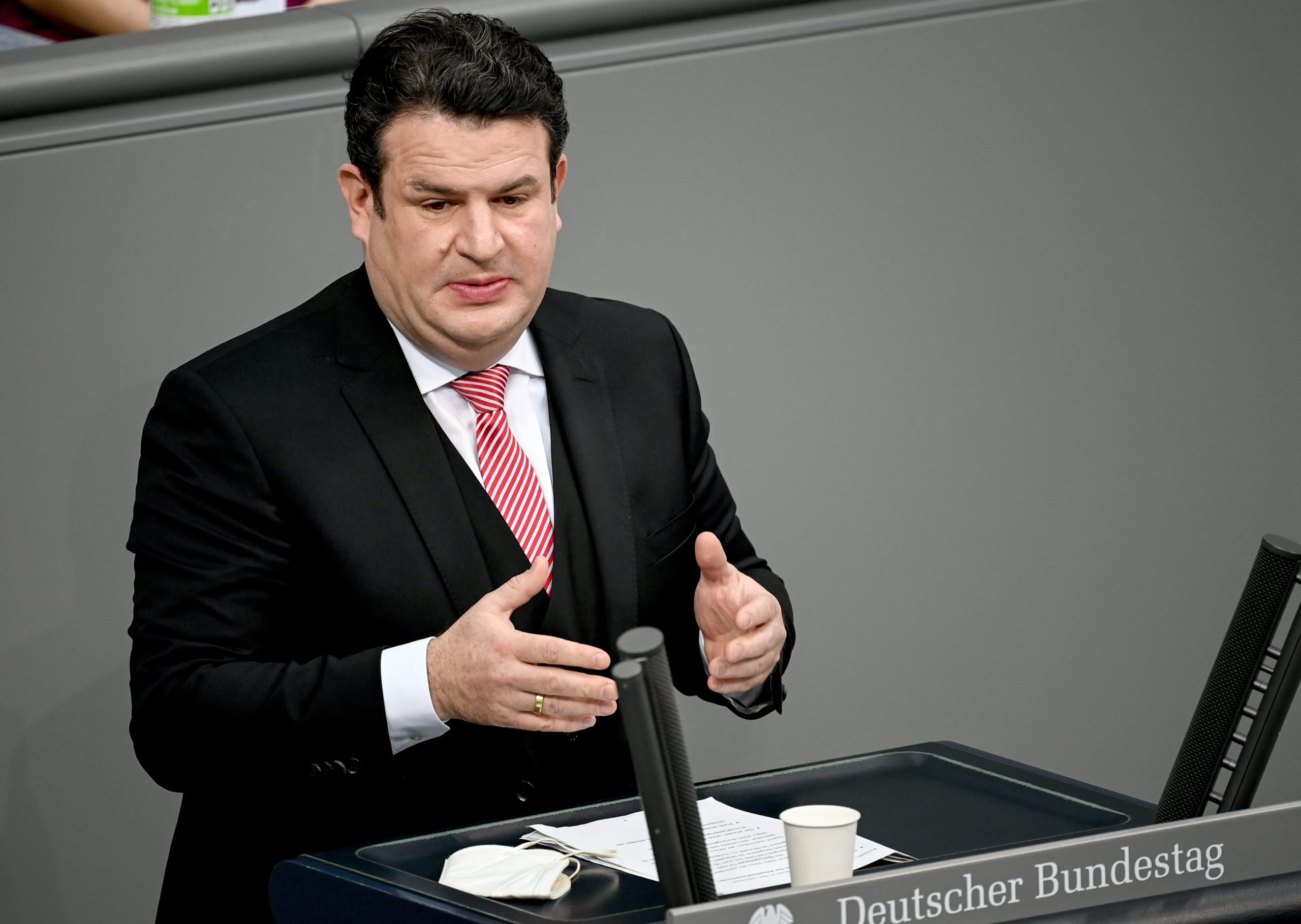Why are so many people in Germany choosing to retire later?

The number of retirement-age people choosing to stay in work has risen dramatically in Germany over the past three years. Could unlivable pensions be playing a role?
What's going on?
Though many dream of an early retirement to enjoy personal pursuits and leisure time, many people in Germany are now taking the opposite route.
According to the latest government statistics, a growing number of people between the ages of 63 and 67 are choosing to remain in work in Germany - even after they reach retirement age.
Between 2020 and 2023, the number of working people in this age group rose from 1.31 million to 1.67 million, which is equivalent to a 26.2 percent rise over three years. In 2022, 1.52 million people aged 63-67 were still in employment.
The latest data, which came in response to a parliamentary question posed by the left-wing Linke party, complicates the narrative that too many older people are exiting the world of work.
Along with MPs from the CDU/CSU, Greens and FDP, employers in Germany have claimed they are experiencing a brain drain as skilled and experienced older workers enter into retirement. Many blame the "retirement at 63" scheme, which previously allowed workers born before 1953 to retire at the age of 63 with no deductions, provided they had paid at least 45 years of insurance contributions into their pension pot.
However, Linke pensions expert Matthias W. Birkwald, who submitted the question, opposes the abolition of the "retirement at 63" scheme. He argues that the increased employment rate of people in their 60s makes it unnecessary to meddle with the current pension system.
READ ALSO: Is it worthwhile to set up a private pension plan in Germany?
Why are people still working in their late 60s?
The reasons appear to be twofold.
For lower income pensioners, the reason for working longer seems to be the fact that their current pension just isn't enough to live on.
According to Birkwald, almost every second senior citizen over the age of 65 in Germany has a net income of €1,250 at their disposal. Calculations by the Federal Statistical Office at the request of the Left Party showed at the beginning of the year that 42.3 percent of pensioners have to make do with a net income of this amount or less.
The fact that the number of seniors in work has spiked over the past few years suggests that the cost of living crisis could be forcing older people to stay in work - or return to it - due to the increasing difficulty of living on a miniscule pension.

A pensioner counts euro notes at a table. Photo: picture alliance/dpa | Lino Mirgeler
However, Destatis also mentions another group that tend to stay in work for longer: the highly educated.
"Higher educational qualifications often go hand in hand with longer participation in the labour market," they said. "Working at retirement age can mean actively participating in social life for longer on the one hand and counteracting the threat of poverty in old age on the other."
For around 40 percent of people aged 65 and over in employment, their job was their main source of income - but for the majority, this income was an additional source of income alongside their pension or assets.
What's the current pension age in Germany?
Germany's standard pension age is currently set at 66, but will gradually increase to 67 by 2031.
People who want to retire earlier are able to, but in normal cases they face penalties for doing so.
For those who have paid at least 45 years of pension contributions. However, there are special exceptions.
READ ALSO: How long do you have to work to receive a German pension?
Previously, people born in 1953 or before could retire at 63 after paying 45 years of contributions. This has since been increased to 64 years and four months for those born in 1960, and for those born afterwards, it will increase to 65 by 2029.
According to the Federal Statistical Office, the labour force participation of 60 to 64-year-olds has increased more in recent years than in any other age group - from 47 percent in 2012 to 63 percent in 2022.
Beyond the regular retirement - i.e. in the 65-69 age bracket - the proportion of people in employment increased from 11 percent in 2012 to 19 percent in 2022.
What's the government's stance on this?
As with the vast majority of topics, perspectives on pensions are split across the different parties in Olaf Scholz's three-party coalition: the Social Democrats (SPD), Greens and Free Democrats (FDP).
Finance Minister Christian Lindner of the FDP has previously joined the opposition CDU and CSU parties in slamming the current "retirement at 63" scheme and calling for its abolition.
"Why don't we incentivise people to want to work longer instead of financing the pension at 63?", he said in an interview. "It's a retirement bonus for qualified employees."
READ ALSO: How does Germany’s retirement age compare to the rest of Europe?
However, official government policy - spearheaded by SPD Labour Minister Hubertus Heil - is to maintain the early retirement scheme and instead incentivise people to work longer.
"Anyone who has worked for 45 years has the right to retire earlier without deductions," Heil told DPA, adding that he would not implement a later retirement age of 70 either.

Labour Minister Hubertus Heil (SPD) speaks in the Bundestag. Photo: picture alliance/dpa/dpa-Zentralbild | Britta Pedersen
In the coming weeks, Heil intends to present his long-announced pension reform. The Labour Minister wants to find ways to balance the books as more and more people from the Baby Boomer generation enter retirement.
For Linke pensions expert Birkwald, however, the onus should be on employers to keep their employees in work.
"We are constantly hearing calls to raise the standard retirement age, abolish the "pension from 63" (...) or a so-called flexible retirement," he said. But the employment of seniors is already increasing.
"Employers have a duty to offer their employees good work so that they want to voluntarily take advantage of the opportunity to work longer," Birkwald added.
Comments
See Also
What's going on?
Though many dream of an early retirement to enjoy personal pursuits and leisure time, many people in Germany are now taking the opposite route.
According to the latest government statistics, a growing number of people between the ages of 63 and 67 are choosing to remain in work in Germany - even after they reach retirement age.
Between 2020 and 2023, the number of working people in this age group rose from 1.31 million to 1.67 million, which is equivalent to a 26.2 percent rise over three years. In 2022, 1.52 million people aged 63-67 were still in employment.
The latest data, which came in response to a parliamentary question posed by the left-wing Linke party, complicates the narrative that too many older people are exiting the world of work.
Along with MPs from the CDU/CSU, Greens and FDP, employers in Germany have claimed they are experiencing a brain drain as skilled and experienced older workers enter into retirement. Many blame the "retirement at 63" scheme, which previously allowed workers born before 1953 to retire at the age of 63 with no deductions, provided they had paid at least 45 years of insurance contributions into their pension pot.
However, Linke pensions expert Matthias W. Birkwald, who submitted the question, opposes the abolition of the "retirement at 63" scheme. He argues that the increased employment rate of people in their 60s makes it unnecessary to meddle with the current pension system.
READ ALSO: Is it worthwhile to set up a private pension plan in Germany?
Why are people still working in their late 60s?
The reasons appear to be twofold.
For lower income pensioners, the reason for working longer seems to be the fact that their current pension just isn't enough to live on.
According to Birkwald, almost every second senior citizen over the age of 65 in Germany has a net income of €1,250 at their disposal. Calculations by the Federal Statistical Office at the request of the Left Party showed at the beginning of the year that 42.3 percent of pensioners have to make do with a net income of this amount or less.
The fact that the number of seniors in work has spiked over the past few years suggests that the cost of living crisis could be forcing older people to stay in work - or return to it - due to the increasing difficulty of living on a miniscule pension.

However, Destatis also mentions another group that tend to stay in work for longer: the highly educated.
"Higher educational qualifications often go hand in hand with longer participation in the labour market," they said. "Working at retirement age can mean actively participating in social life for longer on the one hand and counteracting the threat of poverty in old age on the other."
For around 40 percent of people aged 65 and over in employment, their job was their main source of income - but for the majority, this income was an additional source of income alongside their pension or assets.
What's the current pension age in Germany?
Germany's standard pension age is currently set at 66, but will gradually increase to 67 by 2031.
People who want to retire earlier are able to, but in normal cases they face penalties for doing so.
For those who have paid at least 45 years of pension contributions. However, there are special exceptions.
READ ALSO: How long do you have to work to receive a German pension?
Previously, people born in 1953 or before could retire at 63 after paying 45 years of contributions. This has since been increased to 64 years and four months for those born in 1960, and for those born afterwards, it will increase to 65 by 2029.
According to the Federal Statistical Office, the labour force participation of 60 to 64-year-olds has increased more in recent years than in any other age group - from 47 percent in 2012 to 63 percent in 2022.
Beyond the regular retirement - i.e. in the 65-69 age bracket - the proportion of people in employment increased from 11 percent in 2012 to 19 percent in 2022.
What's the government's stance on this?
As with the vast majority of topics, perspectives on pensions are split across the different parties in Olaf Scholz's three-party coalition: the Social Democrats (SPD), Greens and Free Democrats (FDP).
Finance Minister Christian Lindner of the FDP has previously joined the opposition CDU and CSU parties in slamming the current "retirement at 63" scheme and calling for its abolition.
"Why don't we incentivise people to want to work longer instead of financing the pension at 63?", he said in an interview. "It's a retirement bonus for qualified employees."
READ ALSO: How does Germany’s retirement age compare to the rest of Europe?
However, official government policy - spearheaded by SPD Labour Minister Hubertus Heil - is to maintain the early retirement scheme and instead incentivise people to work longer.
"Anyone who has worked for 45 years has the right to retire earlier without deductions," Heil told DPA, adding that he would not implement a later retirement age of 70 either.

In the coming weeks, Heil intends to present his long-announced pension reform. The Labour Minister wants to find ways to balance the books as more and more people from the Baby Boomer generation enter retirement.
For Linke pensions expert Birkwald, however, the onus should be on employers to keep their employees in work.
"We are constantly hearing calls to raise the standard retirement age, abolish the "pension from 63" (...) or a so-called flexible retirement," he said. But the employment of seniors is already increasing.
"Employers have a duty to offer their employees good work so that they want to voluntarily take advantage of the opportunity to work longer," Birkwald added.
Join the conversation in our comments section below. Share your own views and experience and if you have a question or suggestion for our journalists then email us at [email protected].
Please keep comments civil, constructive and on topic – and make sure to read our terms of use before getting involved.
Please log in here to leave a comment.